4 Urdu ashaar / shayari (shers, couplets) by
Khwaja Meer Dard
1721-1785,
Delhi (Delhi)
Khwaja Meer Dard Biography
Khwaja Meer Dard was one of the greatest poets of eighteenth-century Delhi and a leading figure of Urdu classical poetry. Born in 1721 into a family deeply rooted in Sufi tradition, he grew up in an atmosphere of spiritual devotion and learning. His father, Khwaja Muhammad Nasr, was a Sufi saint of the Naqshbandi order, and this background profoundly shaped Dard’s outlook as both a mystic and a poet.
Dard’s poetry reflects the union of Sufi philosophy and the aesthetics of classical Urdu ghazal. His verses are marked by spiritual depth, moral reflection, and a quest for divine love, while still resonating with human emotions of longing and sorrow. Unlike many poets who sought worldly recognition, Dard’s art was rooted in spiritual experience and the discipline of Sufism. His ghazals often revolve around themes of detachment from material life, the pain of separation, and the search for truth.
Alongside Mir Taqi Mir and Siraj Aurangabadi, Dard is counted among the pillars of Urdu poetry in Delhi during the eighteenth century. His literary gatherings attracted scholars, poets, and seekers of wisdom, making his home a cultural and spiritual hub. While his Persian poetry carried intellectual weight, it was his Urdu ghazals that won him lasting fame. His simple diction, coupled with spiritual intensity, gave his work a timeless quality that still appeals to readers today.
As a Sufi, Dard also wrote prose treatises on spiritual philosophy, emphasizing moral discipline and the path of self-realization. His life combined poetic creativity with religious devotion, and he remained closely tied to Delhi’s Sufi shrines and scholarly circles throughout his years.
He passed away in 1785 in Delhi, leaving behind a legacy that continues to influence Urdu literature and Sufi thought. Khwaja Mir Dard is remembered as a poet who elevated Urdu ghazal by infusing it with spiritual meaning and inner depth, ensuring his place among the most respected classical poets of India.
1 / 4: Khwaja Meer Dard
us ka payaam dil ke siva
kaun laa sake
oh messenger, this is not your job
please be on your way
the message for her
who can deliver but my heart
1
0
0
3.5K
2 / 4: Khwaja Meer Dard
tere ishq mein humne
kyaa kyaa na dekha
torment, travails,
accusations, calamities
in your love, what all
have i not experienced
0
0
0
3.5K
3 / 4: Khwaja Meer Dard
ye bhi ik nau ki
himaaqat hai
to be a hostage to
reason's dictates
is also a kind of
foolishness
0
0
1
2.1K
4 / 4: Khwaja Meer Dard
daaman nichoD de to
farishte vazu karen
mock not, o preacher,
my wet robe
if i wring my garment
angels would wash for prayer
0
0
0
6
Featured Shaayars
548 Shaayars
Featured Themes


Alfaaz Ki Mehfil is a curated space for timeless poetry celebrating words, emotions, and the enduring beauty of expression. From classic Urdu couplets to modern reflections, it brings together generations of poetic voices that speak of love, longing, hope, and the human soul.
Quick Links


